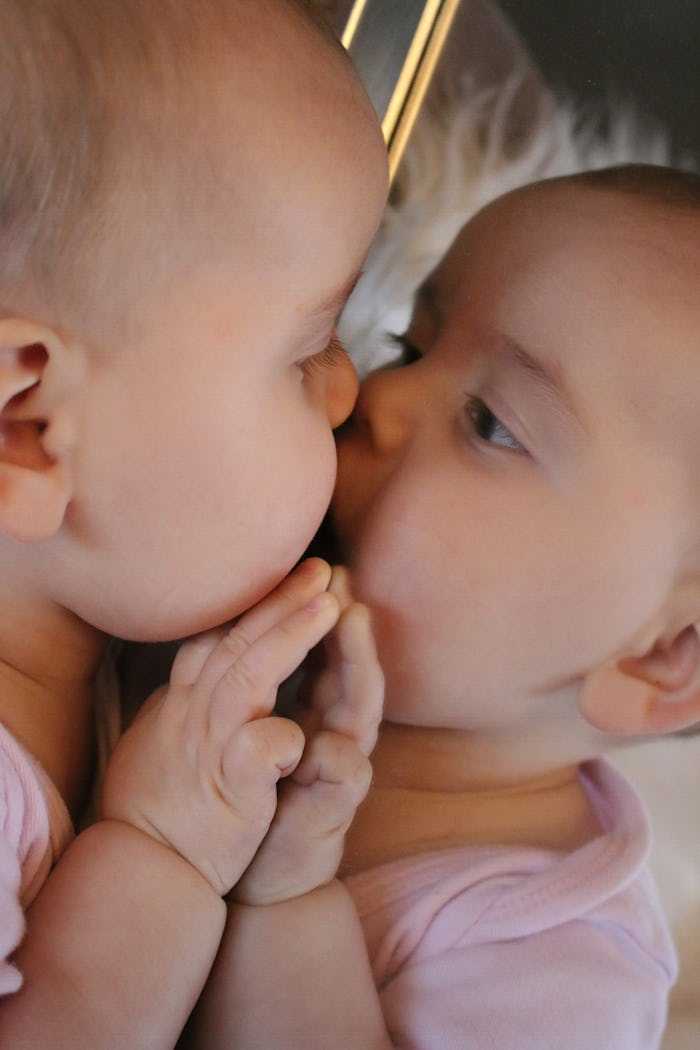In the age of selfies and Snapchat, you're probably wondering, when does a baby recognize itself? It's no secret that babies love checking themselves out in the mirror and any other reflective lens they may find. (Hey iPhone camera) Before you get concerned that you're raising a vain baby who's fascinated with their own reflection, it might help to know that most babies don't start recognizing themselves in a mirror until around 20 to 24 months. According to a famed study published in the Journal of Developmental Pscyhobiology in 1972, by 24 months of age, 65 percent of babies had shown signs of self awareness when looking in the mirror.
In the study, researchers placed a dab of lipstick on the nose of the babies, and then placed them in front of a mirror to see how they responded. According to the study, young infants under a year old seemed to think the baby in the mirror was another baby. Older babies, between 13 and 24 months, approached the mirror with hesitation, and weren't sure what to think of their reflection. By the age of 20 to 24 months, the children seem to clearly recognize the reflection in the mirror as their own. But according to child development researcher Dr. Amy Webb, just because toddlers recognize themselves in the mirror, it doesn't mean that they necessarily have a mental concept of themselves. Recognizing themselves in the mirror is the beginning of self-awareness in a child.
Though it might surprise you to hear that it takes babies so long to recognize themselves in the mirror, the truth is recognizing ones self involves a very complex set of cognitive skills. The beginning stages of self-awareness go hand-in-hand with the concept of consciousness. And consciousness requires a highly sophisticated network of components and nerve cells that are interconnected, according to Scientific American. Though babies develop these components and nerve cells while in the womb, it takes much longer for babies to reach a state of consciousness that children and adults have. This is because for babies to truly understand self-awareness, they need to know that they have their own thoughts and feelings, and this is something that grows with mental capacity over time.
According to What to Expect, as toddlers begin walking and talking on their own, these concepts flourish and expand their understanding of self awareness, as they become more independent and understand themselves as their own being. A study at Emory University suggested that the best way to test your child's self-recognition was to add something to your child's hair or face before placing them in front of the mirror. If your child reaches for the object (a barrette in their hair, a dot of lipstick on their nose) on their own body, they're becoming self-aware. If they reach for the object in the reflection, they're still working on differentiating between their reflection and themselves.
